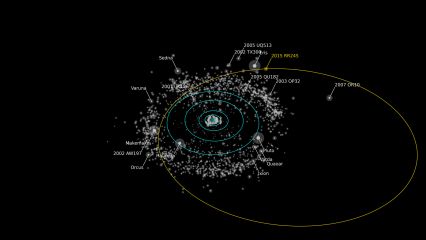
UVic astronomers help discover new dwarf planet
An international team of astronomers including UVic researchers have discovered a new dwarf planet orbiting in the disk of small icy worlds beyond Neptune.

An international team of astronomers including UVic researchers have discovered a new dwarf planet orbiting in the disk of small icy worlds beyond Neptune.
In February, the Natural Sciences and Engineering Research Council of Canada (NSERC) launched its first edition of Science Exposed, a contest to showcase images of scientific research, in all fields of study. Participants are eligible for a chance to win one of three prizes, as well as win $1,000 for the Public Choice Award.
The Canadian Association of Geographers announced Phil Dearden, Ian O'Connell and Simon Springer as the recipients of an award honouring research and teaching excellence.
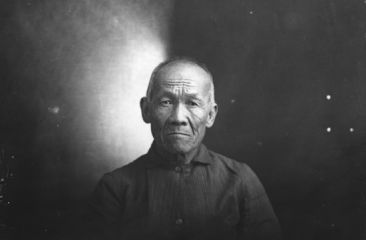
The UVic database of Chinese Canadian Artifacts officially launches July 7 at the evening reception of an annual international conference, ISSCO 2016 in Richmond, BC, bringing together 300 scholars and researchers of the Chinese diaspora.

A study published by Clarise Lim, graduate student in kinesiology working with Ryan Rhodes at the UVic Behavioural Medicine Lab, examines the relationship between dog walking behaviours and dog characteristics, owners’ sense of responsibility and attachment to their dogs, and the quality of their motivations.
Three dean changes took effect July 1: Chris Goto-Jones began a five-year term as Dean of Humanities; Susan Lewis began a five-year term as Dean of Fine Arts; and Rob Lipson returned from administrative leave to resume his position as Dean of Science. Additionally, Oliver Schmidtke has been appointed Acting AVP Research for a one-year term, and Nancy Wright has taken up her position as AVP Academic Planning for a five-year term.
A special thematic issue of the International Journal of Indigenous Health (IJIH), based at the University of Victoria, in collaboration with the First Nations Health Authority (FNHA), features wellness-based health research and practices to strengthen individuals and communities.
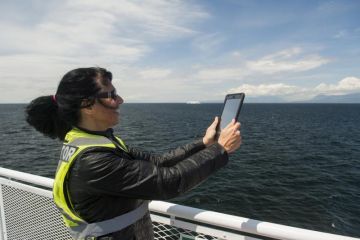
Passengers on BC Ferries this summer have an exciting opportunity to help scientists better understand ocean health and declining salmon populations in the Salish Sea.
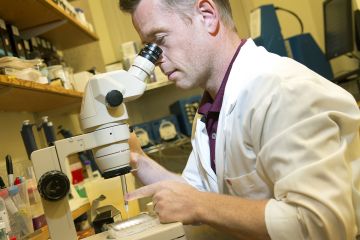
Two University of Victoria biochemists are entering into a collaboration that could take immunotherapy—the latest and most promising form of cancer treatment—to the next level. UVic’s Martin Boulanger and Brad Nelson, a researcher with UVic and the BC Cancer Agency, are partnering with Vancouver-based biotech company Zymeworks Inc. on a cell engineering strategy that will make immunotherapy more potent and precise.

Family heirlooms once owned by one of the wealthiest Japanese Canadians serve as a stark reminder of a national historical injustice and will feature prominently in the UVic-led Landscapes of Injustice project.
Thanks to the efforts of Oak Bay, Saanich and Victoria police, a much-treasured artwork has been recovered and returned to UVic. Sul-Sultan (Spindle Whorl), which has been displayed in the foyer of the Fraser Building for 20 years, was stolen during an overnight break-in on June 13.
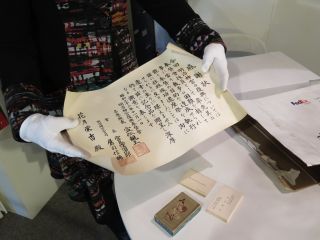
It's not every day museum staff from Vancouver travel thousands of kilometres to a southeastern state in the US known for its Appalachian mountains and humid swamp forests to bring home priceless family heirlooms related to Japanese-Canadian history in BC. Sherri Kajiwara and Linda Kawamoto Reid of the Nikkei National Museum and Cultural Centre (NNMCC) in Burnaby did exactly that last fall.
UVic Child Care Services is embarking on a major renovation project that will add 40 full-time care spaces for 3 to 5-year-old children. In April, university executive approved funding for the $1.685 million facility upgrade.
University of Victoria researchers working in areas of critical importance to the Canadian clean energy sector in smart technology and in big data science are among projects awarded federal funding this week.

Two University of Victoria biochemists are entering into a collaboration that could take immunotherapy—the latest and most promising form of cancer treatment—to the next level.
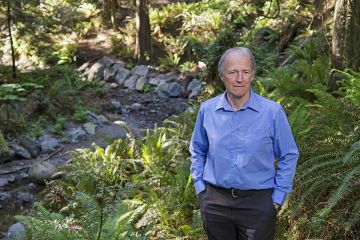
Science is closer to linking some weather-related disasters to human-caused climate change. This spring, a US National Academy of Sciences committee—on which Zwiers served—released a milestone report acknowledging that progress is being made on attributing some extreme events to climate change caused by human activity.